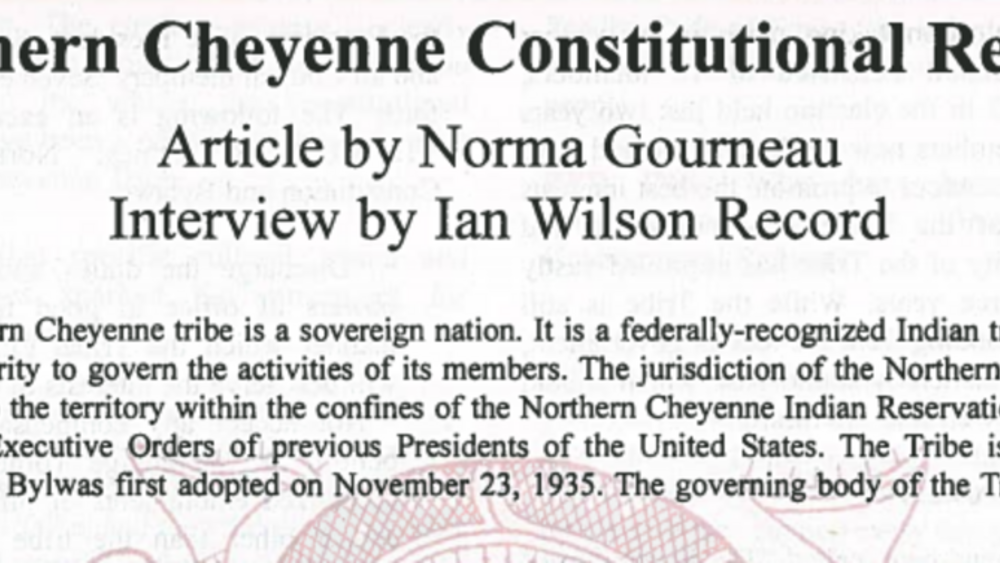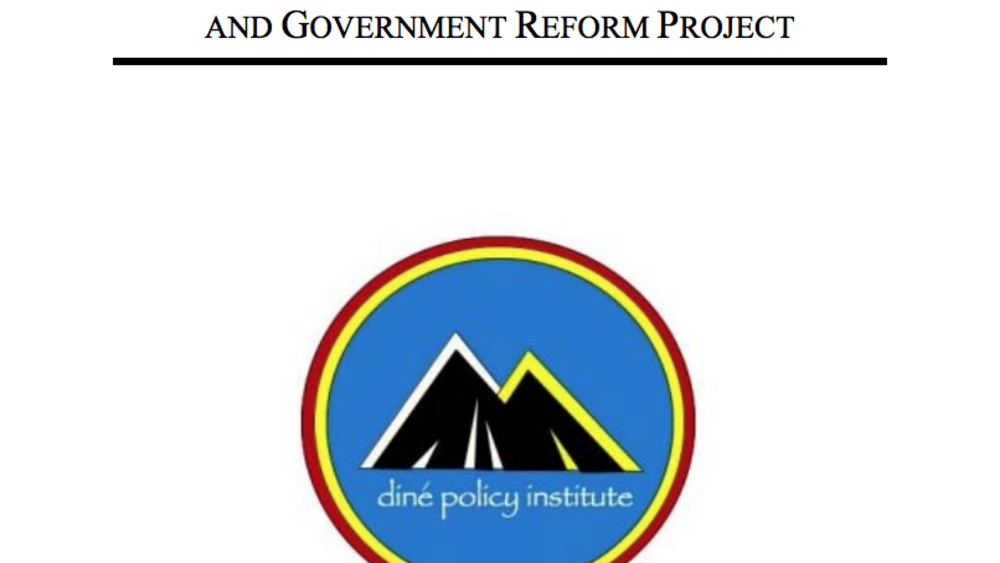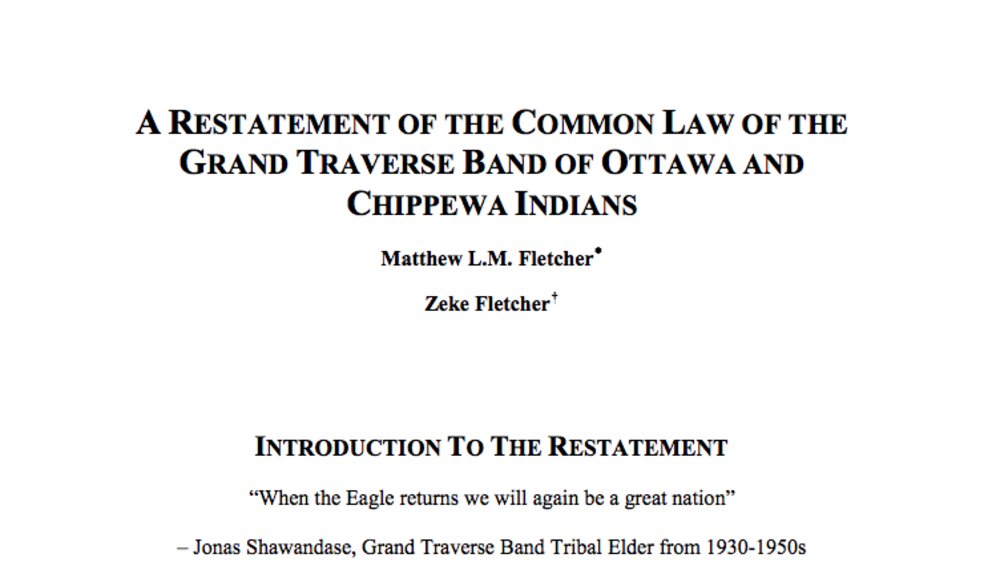Indigenous Governance Database
judicial review

Northern Cheyenne Constitutional Reform
The Northern Cheyenne Tribe is a sovereign nation. It is a federally-recognized Indian tribe with powers and authority to govern the activities of its members. The Tribe is governed by a Constitution and Bylaws first adopted on November 23, 1935. In the early 1990s, in order to meet the…

Shawn Frank: Disenrollment: Considerations of Process
Attorney Shawn Frank stresses the importance of Native nations ensuring that they establish and operate processes for disenrolling their citizens that is fair and transparent. He also offers some strategies that a Native nation can follow in order to create that fairness and transparency -- and…

Miriam Jorgensen: Constitutions: Creating Space for Court-Made Law and Judicial Review (Presentation Highlight)
In this highlight from the presentation "Key Things a Constitution Should Address: 'How Do We Make Law?'," NNI's Miriam Jorgensen explains how a growing number of Native nations are creating space for court-made law and judicial review of legislative and executive actions in their redesigned…

Navajo Nation Constitutional Feasibility and Government Reform Project
This paper will review three important elements related to the constitutional feasibility and government reform of the Navajo Nation. The first section will outline the foundational principles related to constitutionalism and ask whether constitionalism and the nation-state are appropriate…

A Restatement of the Common Law of the Grand Traverse Band of Ottawa and Chippewa Indians
From 1872 until 1980 the United States government continually refused to recognize the sovereign status of the Grand Traverse Band of Ottawa and Chippewa Indians (GTB). For example, citizens of the Grand Traverse Band unsuccessfully attempted to regain this government-to-government relationship in…
